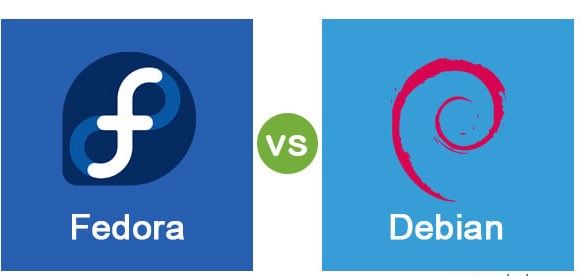Debian vs. Fedora: A Comprehensive Comparison of Leading Linux Distributions
The world of Linux is rich and diverse, offering a plethora of distributions catering to various needs and preferences. Two giants in this landscape, Debian and Fedora, often emerge as top contenders for users seeking stability, performance, and usability. In this blog post, we will delve into the nuances of both Debian and Fedora to help you determine which one might be the better Linux distribution for you.
Debian: The Universal Workhorse
Debian is renowned for its emphasis on stability, reliability, and adherence to the principles of free software. It boasts one of the largest software repositories in the Linux universe, making it an excellent choice for users who prioritize access to a wide range of applications. Debian’s release cycle is known for its cautious approach, focusing on ensuring that every component works seamlessly before a new version is pushed out.
Pros of Debian:
- Stability: Debian’s testing and release processes emphasize stability, making it a favorite among server administrators who need reliable performance.
- Software Availability: The vast Debian software repository ensures you’ll find almost any application you need without much hassle.
- Community and Documentation: Debian has a strong and supportive community, and its documentation is comprehensive, making it easy for users to troubleshoot issues.
- Customization: Debian’s minimalistic installation allows for a tailored setup, allowing you to only install what you need.
Cons of Debian:
- Outdated Software: Due to its focus on stability, Debian may lag behind in terms of offering the latest software versions.
- Learning Curve: For newcomers, Debian’s installation process and package management might involve a steeper learning curve compared to more user-friendly distros.
Why do companies still go for Microsoft .NET technology for software development?
Fedora: The Cutting-Edge Innovator
Fedora, backed by Red Hat, offers a more bleeding-edge experience with the latest software updates and innovations. It has a reputation for being an excellent testing ground for new technologies before they make their way into Red Hat Enterprise Linux. Fedora aims to provide a balance between innovation and stability, making it suitable for both enthusiasts and professionals.
Pros of Fedora:
- Latest Software: Fedora is often among the first distributions to integrate the latest software versions, making it an ideal choice for users who crave the latest features.
- User-Friendly: Fedora’s installer and graphical tools contribute to a more approachable experience, making it a good choice for newcomers.
- Innovative: If you’re interested in experimenting with cutting-edge technologies, Fedora’s focus on innovation can be highly appealing.
- Variants for Specialized Use Cases: Fedora offers spins and variants designed for specific use cases, such as gaming, design, and security.
Cons of Fedora:
- Shorter Support Lifecycle: Fedora releases have a relatively short support cycle compared to Debian, which might not suit users looking for a long-term stable environment.
- Potential Instability: The rapid pace of updates in Fedora can lead to occasional stability issues, making it less suitable for critical server environments.
The choice between Debian and Fedora largely depends on your requirements and preferences. If you value stability, reliability, and access to a wide range of software, Debian might be your better option. On the other hand, if you’re an enthusiast seeking the latest features, are comfortable with a more rapid release cycle, and can tolerate a bit of occasional instability, Fedora could be the better fit.
Before making a decision, consider factors such as your technical expertise, the purpose of your Linux installation (server, desktop, development), and your comfort level with handling potential troubleshooting. Both Debian and Fedora have strong communities and dedicated documentation to assist you along the way.
In the end, whether you lean towards Debian’s rock-solid stability or Fedora’s adventurous innovation, both distributions showcase the vibrant nature of the Linux ecosystem, offering a solution for every kind of user.

